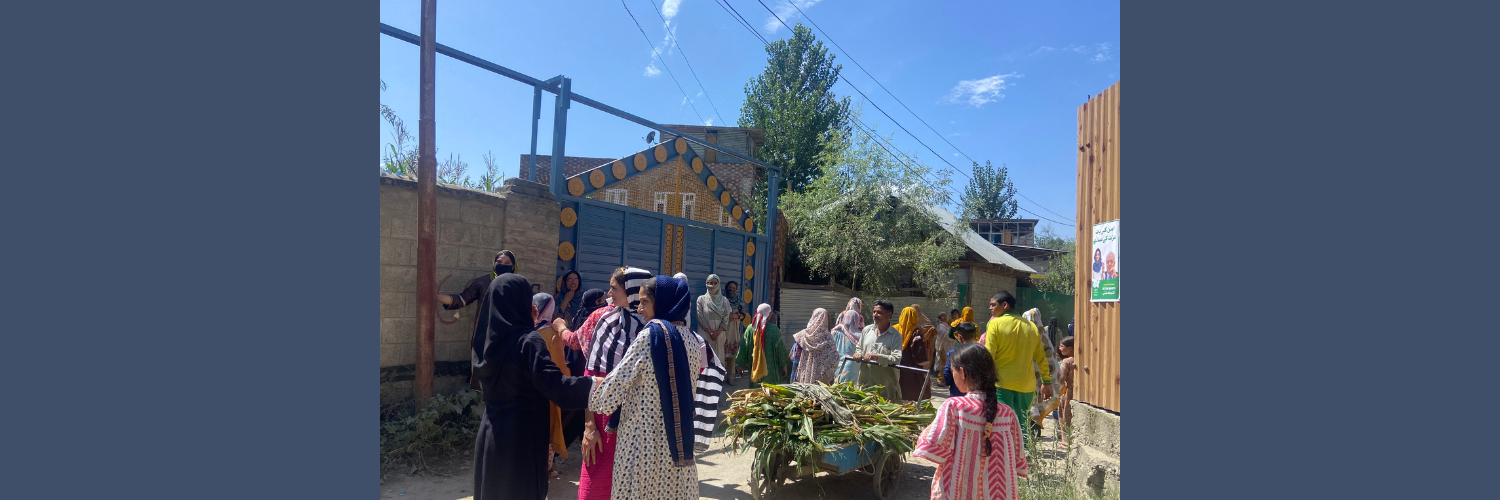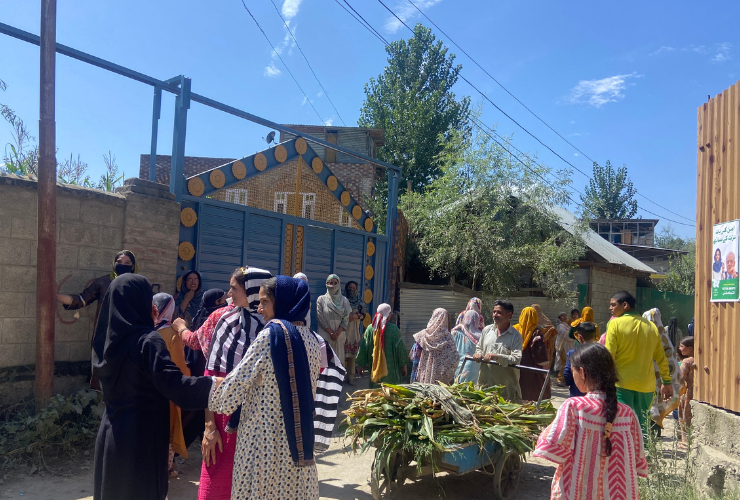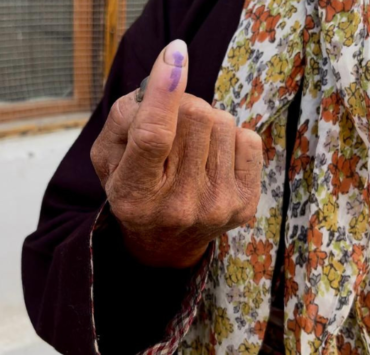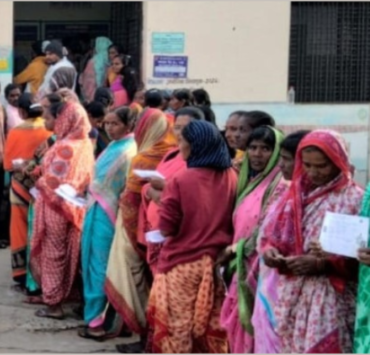
By Raihana Maqbool

As Jammu and Kashmir awaits the results of the first Assembly election in a decade, it’s become clear that the votes of the women of Kashmir have been driven by three pressing concerns—freeing their sons and brothers from jails, improved infrastructure, and rising inflation.
Nine million registered voters were expected to exercise their vote, and the overall turnout was 63.88%. The Election Commission had declared that the exit poll results could be announced only after 6pm on 5 October, once voting in Haryana concluded. Most exit polls, which can often be inaccurate, have predicted a hung Assembly for Jammu and Kashmir, which voted in three phases from 18 September to 1 October. The results of the election, initiated following a landmark Supreme Court judgment in December 2023, are expected on 8 October.
The mood during campaigning in the run-up to the election was one of cautious optimism and hope. The main concern among women voters was the fate of their sons, imprisoned in jails. “It’s like we had lost our voices,” said a woman from Anantnag district. “We have been waiting for someone to speak up for us, for someone to take our children’s cases to the authorities and get them out of jail. That’s why we are voting this time—we need a representative who will listen to us, who will fight for us.”
According to a 2022 Amnesty International report based on data from the Jammu and Kashmir and Ladakh High Court, a total of 761 habeas corpus petitions were filed in 2019, many relating to detentions under the Public Safety Act (PSA). In the first seven months of 2022, 585 habeas corpus petitions were filed, with 569 specifically related to detentions under the PSA. The report also highlights that in Kashmir, the most prevalent charges against men include offenses related to militancy, sedition and unlawful assembly, often leading to arbitrary imprisonment without due process, practices frequently condemned by human rights organizations.
In Habba Kadal in Srinagar, the election was not just about casting a ballot but about demanding change, seeking freedom, and reclaiming their voices. They also raised issues of improved infrastructure, rising inflation, and job opportunities for their educated children. Many women expressed growing frustration about the rising cost of essential goods and services. In the Bichbehara village of Kashmir, women gathered to campaign for their candidate, their faces filled with determination. They sang and chanted, expressing their desire for a brighter future where their concerns were heard and their struggles eased.
“The rising inflation has taken a toll on my household budget. Every time I buy something at the market, the prices seem higher. Sometimes I return without buying anything,” said Hajira Begum from the Habba Kadal area in Srinagar. Her other complaint was about the lack of jobs for educated youth. “Despite completing his master’s degree three years ago, my son still struggles to find a job. To make matters worse, the private sector in Kashmir is limited and offers meager salaries.”
“I’m voting for someone who will address our issues,” said Aamina Ashraf, a single mother from Srinagar. “The bills are crippling, and as a single mother, I’m struggling to make ends meet. I hope the elected representatives will take notice and work towards finding solutions.”
Raihana Maqbool is an independent journalist based in Kashmir.
Edited by Shalini Umachandran




